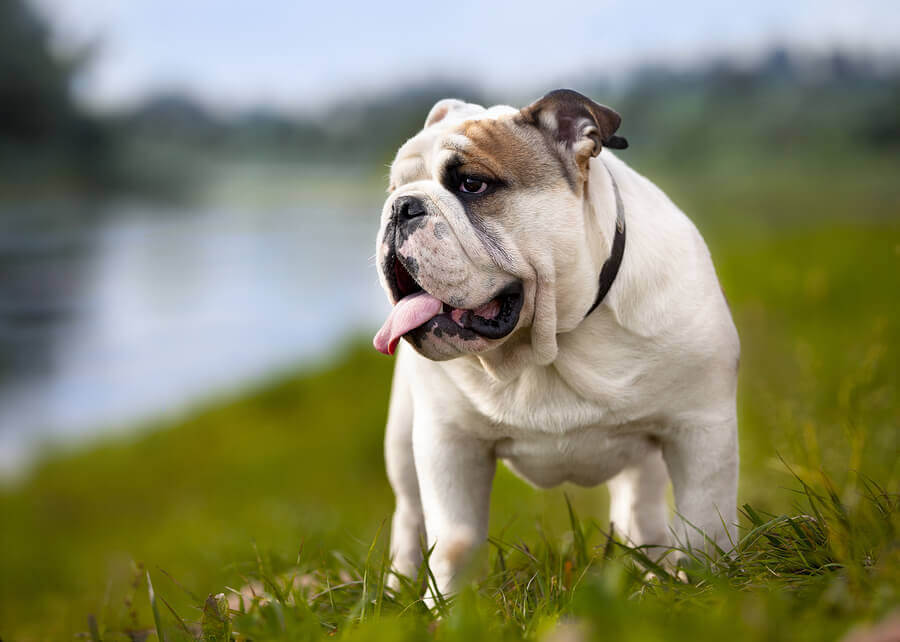There are many breeds and varieties of bulldogs, from the short and squat English and French types to the tall and proud American, plus many rarer sub-types. All bulldogs are known for being stubborn, confident, and fun-loving. Occasionally they can be aggressive. They are generally loyal to their family and may be indifferent towards or afraid of strangers. American bulldogs are much more active than the other types.
Needs
American bulldogs are often entered into controversial weight-pulling competitions, which some people say are cruel. Beyond that, American bulldogs are often exercised simply by taking long walks on a leash around the neighborhood. More aggressive dogs will need to wear a muzzle for safety reasons. English bulldogs and Frenchies, on the other hand, should do little exercising. Their bowed legs and brachycephalic faces make intense exercise dangerous. They can be stubborn and are considered one of the less intelligent breeds, so leash training is often very difficult.
Diet
Bulldogs are likely to suffer from bloat, obesity, and allergies. As a result, much thought and planning will need to go into their diets. They should be fed slowly to prevent dangerous gorging. Some American bulldogs will be aggressive around food, in which case a behavioral specialist should get involved. All bulldogs should be fed enough so that they are neither too thin nor too fat. Itchy dogs may have a food allergy.
Health Issues
The most significant threat to a bulldog’s health is the risk of heatstroke. More than a century of terrible breeding has resulted in dogs that can barely breathe even on good days. Too much heat and/or too much exercise can quickly kill a bulldog. All French bulldogs and most English bulldogs are incapable of swimming and will sink like a rock due to their bone structure. It is important they never be let near deep water or other drowning risks.

